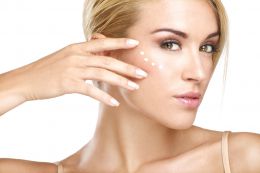Mr. Martijn de Schepper
Company law
Attorney: Warm, committed team player. Excels at finding creative strategies and solutions.
Written by Mr. Martijn de Schepper
 Cosmetics giant Vichy advertises an anti-wrinkle cream with a long-lasting lifting effect. According to the maker of a television programme, this claim is misleading. The Eindhovens Dagblad and Volkskrant newspapers have reported that the Dutch Advertising Code Committee (RCC) also considers the advertising misleading.
Cosmetics giant Vichy advertises an anti-wrinkle cream with a long-lasting lifting effect. According to the maker of a television programme, this claim is misleading. The Eindhovens Dagblad and Volkskrant newspapers have reported that the Dutch Advertising Code Committee (RCC) also considers the advertising misleading.
Vichy submitted an appeal: it has scientific evidence to prove the success of the anti-wrinkle cream. But that proof has to remain secret. Perhaps the competition are using this complaint procedure to discover the secret formula?!
It is a basic principle that advertising is permitted to exaggerate and this happens on a daily basis. On the other hand, Brussels and The Hague are generating increasing amounts of consumer protection legislation. The Netherlands Consumer Authority (CA), has responsibility for supervising compliance with consumer rights. If a significant number of complaints are received by the RCC, the CA can take action and substantial fines can result.
On the other hand, if a complaint is unfounded the RCC often tends to find grounds to issue a warning anyway. So why would a company bother to defend itself? Well, anti-wrinkle cream that doesn’t work is likely to be harder to sell. We now have a forest of overlapping bureaucratic rules that can be used to catch companies out. The volume of rules could easily be halved, but consumers are better protected and it gives journalists lots of material for satisfyingly sensational television programmes. And, who knows, this journalist might just be right: the outcome of the appeal is not yet known.
In the mean time, I’ll just keep using Nivea when the winter weather dries out my hands and giving businesses advice on all those rules.
This website uses cookies to improve our services and website